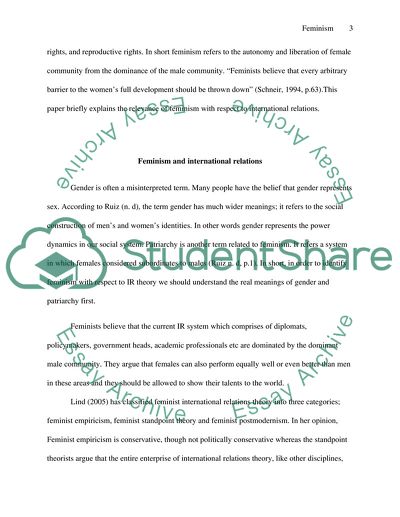Cite this document
(“Relevance of Feminism for International Relations Essay”, n.d.)
Relevance of Feminism for International Relations Essay. Retrieved from https://studentshare.org/social-science/1739505-what-is-the-relevance-of-feminism-for-international-relations
Relevance of Feminism for International Relations Essay. Retrieved from https://studentshare.org/social-science/1739505-what-is-the-relevance-of-feminism-for-international-relations
(Relevance of Feminism for International Relations Essay)
Relevance of Feminism for International Relations Essay. https://studentshare.org/social-science/1739505-what-is-the-relevance-of-feminism-for-international-relations.
Relevance of Feminism for International Relations Essay. https://studentshare.org/social-science/1739505-what-is-the-relevance-of-feminism-for-international-relations.
“Relevance of Feminism for International Relations Essay”, n.d. https://studentshare.org/social-science/1739505-what-is-the-relevance-of-feminism-for-international-relations.


